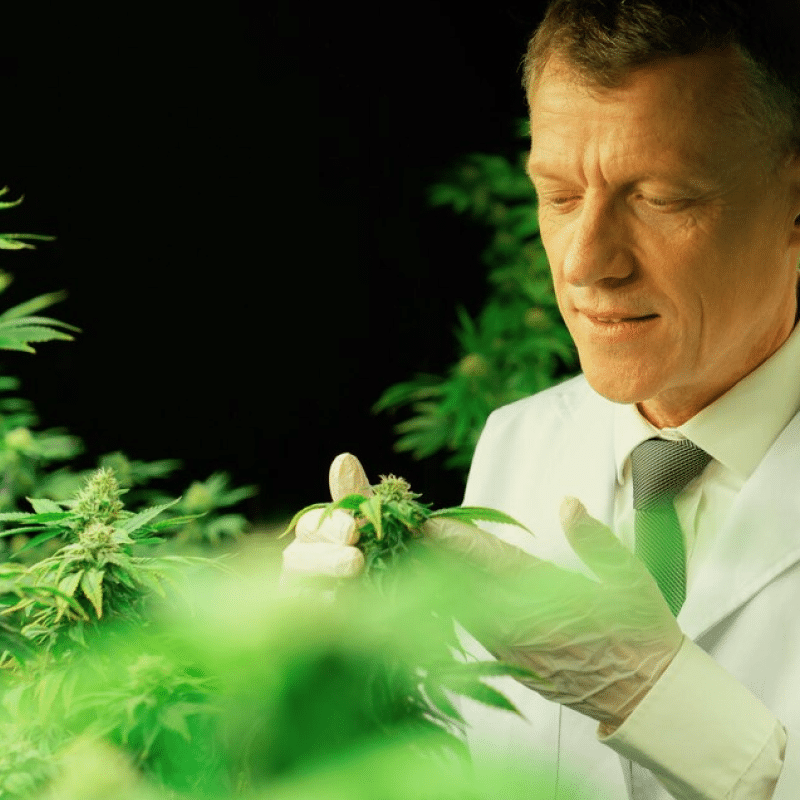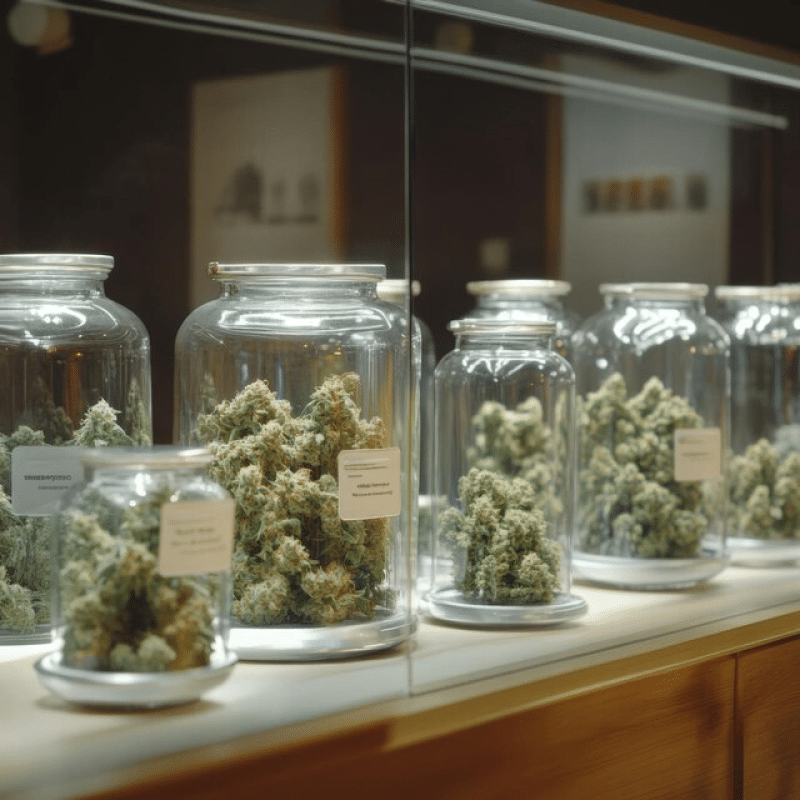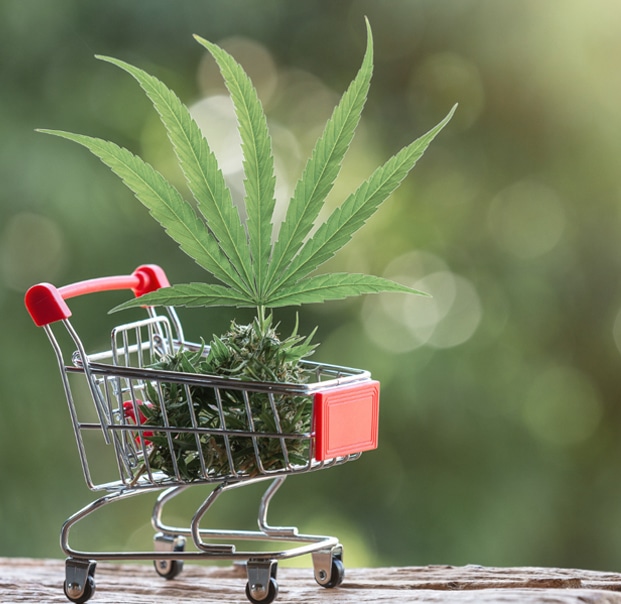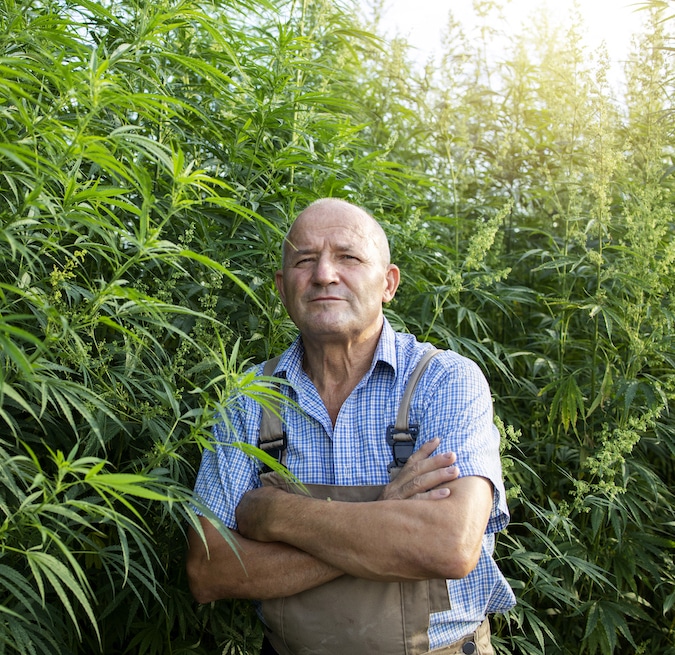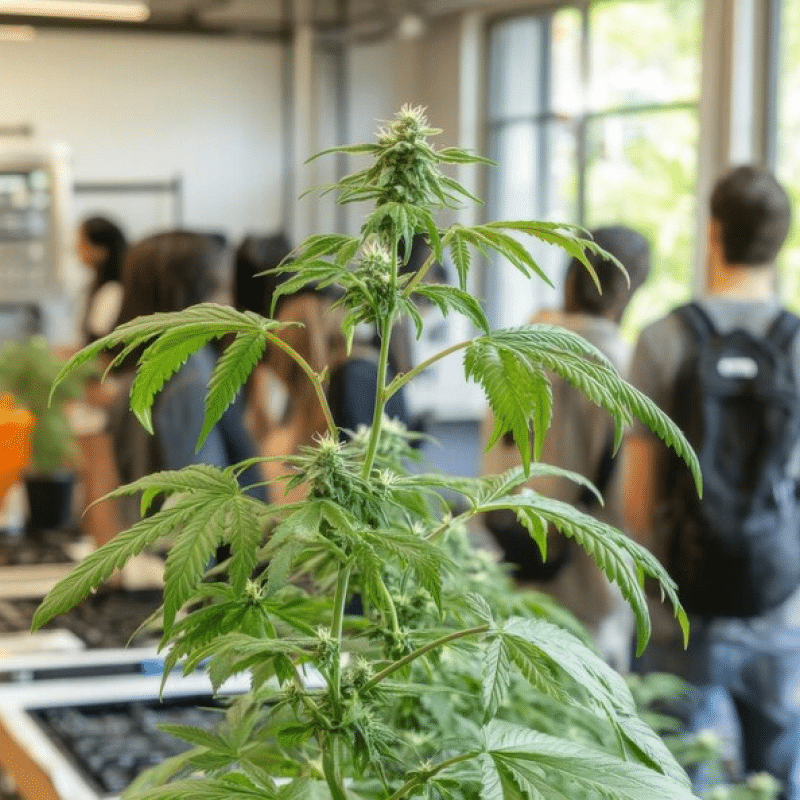Background
Cannabis legalization has led Illinois residents to explore promising opportunities in the state’s industry by obtaining cannabis licenses.
Still, securing a cannabis business license can be complex and challenging. In this article, we will provide you with a detailed step-by-step process, simplifying the application journey.
By following these steps, you will gain a better understanding of the requirements and procedures involved in acquiring a valid license for commercial cannabis activity in Illinois.
Let’s dive in and explore how you can successfully start off this exciting venture.
Types of Cannabis Licenses in Illinois
Cultivation Licenses
Permits for growing cannabis, with various tiers based on facility size and growing conditions.
Manufacturing Licenses
Allows for processing cannabis into various products, including extracts and edibles.
Retail Licenses
Enables the operation of dispensaries and delivery services for medical and/or recreational use.
Distribution Licenses
Required for transporting cannabis products between licensed facilities.
Cultivation Licenses
Craft grower and cultivation center licenses available. Application requires social equity and business compliance.
Back to the TopManufacturing Licenses
Infuser licenses for product manufacturing. Must meet safety, packaging, and health standards.
Back to the TopRetail Licenses
Dispensary licenses issued through social equity programs. Limited by region and population.
Back to the TopDistribution Licenses
Transporter license required for third-party cannabis movement.
Back to the TopHow to Obtain a Cannabis License in Illinois
Research and Prepare
Obtaining a cannabis license in Illinois requires meeting specific requirements and criteria. Here is an overview of the licensure process, including eligibility criteria, residency requirements, background checks, application timeline, and associated fees:
- Eligibility Criteria: Applicants must be at least 21 years old and demonstrate compliance with all applicable state laws and regulations. They must also show proof of financial responsibility and suitability to operate a cannabis business.
- Residency Requirements: Illinois does not have residency requirements for ownership or control of a cannabis business. However, the Cannabis Regulation and Tax Act prioritizes social equity applicants, which includes individuals from disproportionately impacted areas and those with past cannabis-related convictions.
- Background Checks: All applicants and their principal officers, board members, and shareholders with a 5% or greater ownership interest must undergo background checks. The checks cover criminal history, tax compliance, and any involvement in illegal drug trafficking.
- Application Timeline: The application process and timeline can vary. Illinois periodically opens application windows for different license types. Interested applicants should monitor the IDFPR’s official website and announcements for updates on when applications will be accepted.
- Associated Fees: The cannabis license application fee in Illinois varies based on the license type. The fees range from $5,000 to $60,000, depending on the license category. Additional fees may apply for background checks and other related services.
Note that the specific requirements, criteria, and fees for obtaining an Illinois cannabis license may change over time. For the most accurate and recent information, you can consult the official resources provided by the Illinois Department of Financial and Professional Regulation (IDFPR) and consider seeking legal counsel.
Develop a Solid Business Plan
Creating a comprehensive cannabis-related business plan holds paramount importance when entering the Illinois cannabis market. A well-crafted cannabis business plan demonstrates your understanding of the industry, increases the likelihood of securing a license, and sets a solid foundation for your operations.
Key elements to include in the plan are market analysis, financial projections, security measures, and compliance strategies. Conduct a thorough market analysis to understand the local demand, competition, and target demographics.
Financial projections should outline startup costs, revenue forecasts, and break-even analysis. Security measures are crucial, given the nature of the cannabis industry. You should cover inventory control, surveillance systems, and employee background checks.
Compliance strategies must align with the stringent regulations set by the Illinois Department of Financial and Professional Regulation. (IDFPR) Be sure to outline procedures for inventory tracking, record-keeping, lab testing, and packaging.
Expert guidance can help navigate the intricacies of the licensing process, ensure compliance with the law, get a quick gov approval, and increase your chances of success in the Illinois cannabis market.
Assemble the Necessary Documentation
Here’s an expanded checklist of the necessary documentation for obtaining a cannabis license in Illinois:
- Proof of Identification and Residency in Illinois: Owners must provide valid government-issued identification documents, such as a driver’s license or passport, to verify their identity and residency in Illinois.
- Proof of Financial Stability and Funding Sources: Documentation demonstrating your financial stability, including bank statements, financial statements, and proof of funding sources to support your cannabis business.
- Property and Lease Agreements: If applicable, provide property documents and lease agreements for the intended business location for licensing. Ensure the property meets the zoning requirements and complies with Illinois recreational or medical cannabis regulations.
- Security Plans and Measures: Owners need to share detailed security plans outlining the physical security measures, surveillance systems, access controls, and alarm systems to safeguard the premises, inventory, and employees.
- Standard Operating Procedures (SOPs): Develop comprehensive SOPs specific to cultivation, manufacturing, or retail operations, covering areas like cultivation techniques, product testing, inventory control, record-keeping, packaging, and labeling.
- Employment and Labor Compliance Documents: Employment-related documents such as job descriptions, employee agreements, and labor compliance policies adhering to Illinois employment laws, including minimum wage requirements, worker safety rules, and anti-discrimination policies.
- Community Engagement Plan: Some licenses may require a community engagement plan demonstrating how your business will contribute to the local community, create job opportunities, and address any potential concerns.
- Environmental Compliance Measures: Documentation outlining environmentally responsible practices, waste management procedures, and sustainability efforts.
- Insurance Coverage: Provide proof of appropriate insurance coverage, including general liability insurance, product liability insurance, and worker’s compensation insurance.
- Record-Keeping and Compliance Documentation: Develop a system for record-keeping and compliance, including track-and-trace software, patient or customer databases (if applicable), and procedures for compliance with state regulations.
It is essential to review the specific requirements outlined by the Illinois Department of Financial and Professional Regulation (IDFPR) for the exact documentation needed for each license type. Also, check their website if you’re a social equity licensee for specific documentation.
Submitting the Application
To complete and submit an application for a recreational or medical cannabis license in Illinois, follow these steps:
- Read and understand the application requirements: Thoroughly review the application guidelines, instructions, and any supplemental materials provided by the Illinois Department of Financial and Professional Regulation (IDFPR).
- Gather the necessary documentation: Collect all required documentation, including proof of identification, residency, financial stability, property agreements, security plans, SOPs, employment and labor compliance documents, community engagement plans, insurance coverage, and record-keeping systems. Social equity licensees may need to provide other specific documents, too. So, ensure you’re covered for everything.
- Complete the application forms: Fill out the application forms accurately, paying attention to details and ensuring all fields are completed correctly. Provide clear and concise responses, addressing all questions and requirements.
- Review and proofread: Review the completed application forms, documentation, and attachments for any errors or omissions. Proofread carefully to ensure accuracy and clarity.
- Meet submission deadlines: Adhere to the designated submission deadlines specified by the IDFPR. Late submissions are typically not accepted, so ensure ample time for gathering and organizing all required materials.
- Pay application fees: Submit the required application fees as outlined by the IDFPR. Ensure the payment is made in the correct format and amount.
- Submit the application: Compile all completed forms, supporting documents, and payment, following the specified submission method (online or physical submission). Keep copies of all submitted materials for your records.
When preparing your application for a recreational or medical cannabis license in Illinois, showcase your qualifications, experience, and understanding of the Illinois cannabis market. Emphasize your commitment to compliance, responsible operations, and adherence to regulatory standards.
Payment and Fees
Note: Fee structures are subject to change. Consult the official Illinois cannabis regulatory website for current fee schedules.
Application Fees
The application fee covers the initial costs associated with processing and reviewing cannabis business license submissions in Illinois. These fees vary depending on the type of license and the size of the proposed operation. It’s essential to ensure all application materials are complete and accurate to avoid delays or additional costs.
License Fees
License fees are required to maintain compliance and secure operating privileges for cannabis businesses in Illinois. These fees are determined based on the license type, such as retail, cultivation, or distribution, and are typically due annually. Staying current with license payments is crucial to avoid penalties or disruptions in business operations.
Application Review and Compliance Inspection
The timeline for application review and compliance inspections in Illinois can vary depending on the specific circumstances and workload of the legal authorities. Generally, the application review process may take several months.
Compliance inspections are typically conducted after the initial application review and can occur at any time during the licensing process.
Maintain open communication with authorities, respond promptly to inquiries, and cooperate during compliance inspections. To succeed, cannabis businesses must adhere strictly to regulations, maintain accurate records, implement robust security, and have SOPs for demonstrating compliance.
Remaining Compliant with Illinois Regulations
Complying with Illinois regulations for cannabis businesses is imperative for their success.
In Illinois, compliance requirements involve accurate record-keeping of all cannabis products, robust security for premises and inventory, record of measures for public health, and product testing for safety and quality.
Plus, adhering to labeling regulations is crucial for product information and consumer safety.
Establish strong compliance protocols for Illinois regulations and stay informed about any changes in legislation.
Regularly review and update practices for ongoing adherence to regulations.
Risk and Compliance Factors From AlphaRoot
The cannabis industry, while burgeoning with opportunities, is not without its complexities and inherent risks. Understanding and mitigating these risks is crucial for long-term success. AlphaRoot, a prominent insurance and risk management firm specializing conduct business in the cannabis sector, sheds light on the key risk and compliance factors
1. Regulatory and Legal Risks
Labyrinthine Regulations The cannabis industry is highly regulated, and compliance with state and local laws is paramount for cannabis establishments. Navigating the intricate web of regulations, which can vary significantly from one jurisdiction to another, poses a substantial challenge for cannabis establishments. Failure to comply can result in fines, license revocation, or legal consequences.
Federal Ambiguity Cannabis remains illegal at the federal level in the United States, despite state-level legalization of recreational marijuana. This dichotomy creates uncertainties and exposes businesses that sell recreational marijuana here to potential federal enforcement actions.
2. Financial Risks
Cash-Intensive Operations Due to federal banking restrictions, many cannabis businesses operate primarily in cash. This not only presents security risks but also complicates financial management and taxation.
Taxation Challenges Cannabis businesses face unique tax challenges, including limitations on deductions and potential audits. Understanding and complying with tax regulations is essential to avoid financial penalties.
3. Security Risks
Theft and Robbery Cannabis businesses are susceptible to theft and robbery due to the high value of their products. Implementing robust security measures at a marijuana cultivation facility, including surveillance systems and secure storage, is vital to mitigate these risks.
Cybersecurity As with any industry, cannabis businesses are vulnerable to cyberattacks. Protecting sensitive customer data and business information is critical.
4. Product Liability and Quality Control
Product Liability Claims Ensuring the safety and quality of cannabis products is crucial to prevent product liability claims. Contaminated or mislabeled products can lead to legal and financial repercussions.
Testing and Quality Assurance Collaborating with reputable independent testing laboratory and facilities, as required by regulations, is essential to verify the safety and potency of cannabis products. Consistent quality control is essential to maintain consumer trust.
5. Market Competition and Volatility
Saturated Markets in regions with a high concentration of cannabis businesses, competition can be fierce. Navigating market saturation requires effective differentiation and marketing strategies.
Price Volatility The price of cannabis products can fluctuate significantly, impacting profitability. Businesses must adapt to market dynamics and price changes.
6. Environmental and Sustainability Concerns
Resource Intensity Cannabis cultivation and processing can be resource-intensive, including water and energy consumption. Businesses need to address sustainability concerns and adhere to environmental regulations.
Waste Management Proper waste disposal and recycling practices are essential to minimize environmental impact and meet regulatory requirements.
7. Talent and Workforce Challenges
Talent Shortages the cannabis industry often faces challenges in recruiting and retaining qualified personnel due to its specialized nature. Employee turnover can disrupt operations.
Training and Compliance Businesses must invest to ensure employees are well-informed about compliance and safety protocols.
About the Author

AlphaRoot Team
The AlphaRoot marketing team are seasoned experts with deep knowledge of the cannabis industry. Our informative articles help cannabis businesses thrive in a competitive landscape. From compliance to insurance tips, we’re dedicated to providing advice tailored to your needs.
